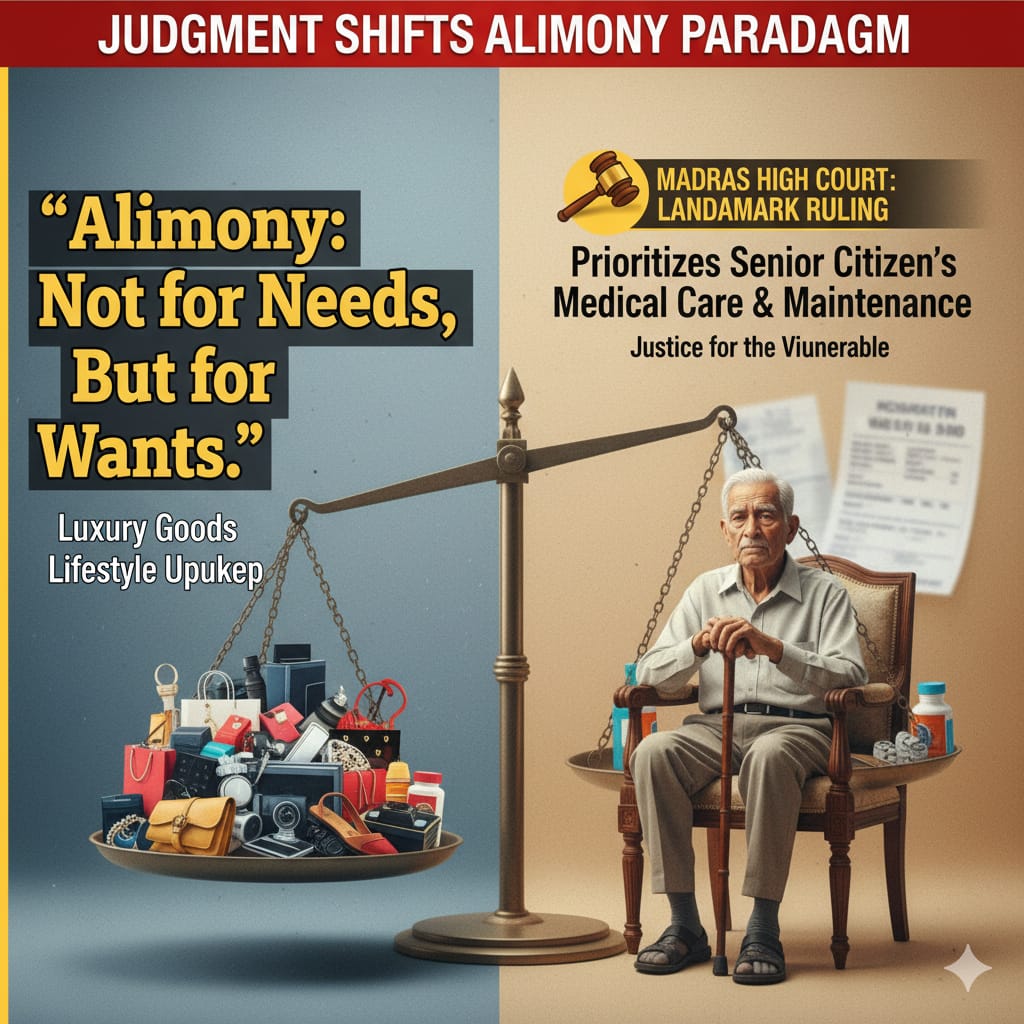Introduction
In the case of Menaka & Ors. v. Murugan (Crl. R.C.(MD) No. 417 of 2024) is one of the rarest cases of Indian Judiciary where the court from its original proceeding in family court to the court of first appeal i.e. The High Court are on the same page of not granting alimony to the wife for survival. The court clarified that the provisions of Section 125 of CrPC are not absolute in nature. The demand of fulfilling Rs. 30000 to maintain herself and her daughter. The court identified the petitioner was capable enough to maintain herself whereas the respondent is an old person, is suffering due to paralysis, and suggested the provision under which the respondent can claim maintenance. Why not Alimony ?
The background of the case, Ms. Maneka demanded an alimony of Rs. 30000 on the contention that the respondents has received 15 lakh as part of this post retirement benefits. But after sometime the respondent suffered a paralysis attack and was bedridden for past month. He himself is dependent and is abandoned by the family despite critical conditions, requiring a minimum of Rs. 5000 for his medical expenses. In reality the respondent received 3 lakh as part of the post retirement benefits, monthly pension varying from Rs. 5000 – 10000. Regretfully due to the civil suits by his wife his access to the funds is blocked by his wife.
Considering the gravity of the situation, Justice Gowri examined the Section 125 CrPC professed that this is not an absolute provision that is contingent on the nature when the husband is negligent or refuses to waive off his financial duties. The court visited the case of Chaturbhuj v. Sita Bai (2008) where the SC held that the maintenance provisions are preventive measures focused at preventing destitution not a punitive instrument to punish respondents. The Court foregrounds that “the entitlement of the wife is subject to proof of neglect or refusal on the part of the husband and also dependent upon his financial capacity”.
The Court inducted a crucial aspect by maintaining equilibrium in obligations in Maintenance and Welfare of Parents and Senior Citizens Act, 2007, by stating that “… a senior citizen also has a statutory right to maintenance and medical care under Maintenance and Welfare of Parents and Senior Citizens Act, 2007”
Conclusion
The Madras High Court upholding the the trial court’s decision ordered that Maneka was able to support her family by herself, her husband who is a senior citizen was bedridden with serious medical aliments, should not be burdened establishing a significant precedent and unwinding new arena of the maintenance concept. The Court stated that the rights of the citizens are protected under a statute therefore cannot be disregarded addressing maintenance cases, ensuring that the law doesn’t transform into an unreasonable power forgetting its objective to guard all the citizens fairly.
About the author
Atharva Gajanan Jakkalwar, a 2nd year student pursuing his B.A., LL.B. degree at the Maharashtra National Law University Mumbai, is a committed scholar of legal studies. With a focused interest in Constitutional Law, Jurisprudence, and Election Law, Atharva actively engages with complex legal principles and the practical applications of law, establishing himself as a keen observer and an aspiring legal analyst.

